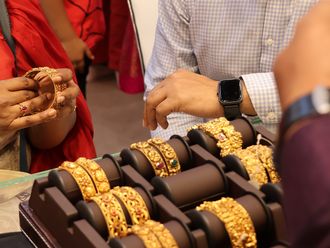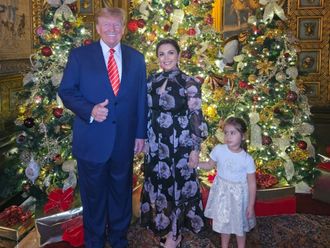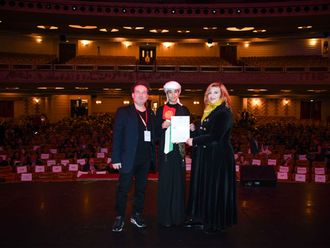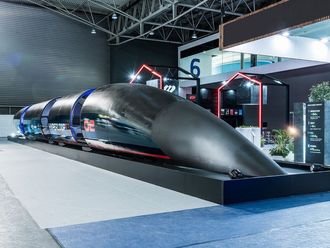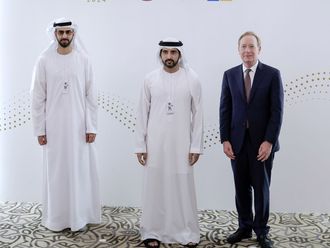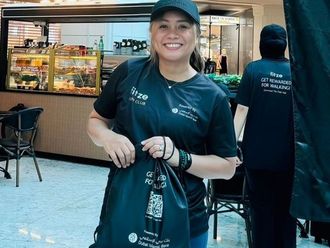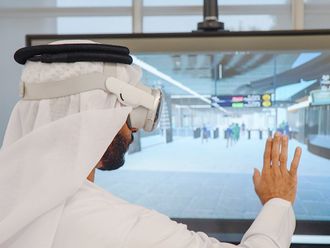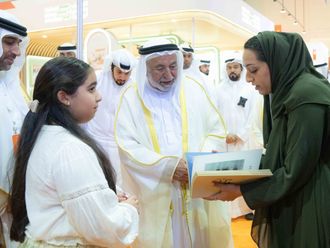Saudi dissident Osama bin Laden has become more dangerous than Iraqi President Saddam Hussein in influencing Philippine terrorists, the military said in a report to the defence department.
Abu Sayyaf Group founder Abdurajak Janjalani, Iraqi-born international terrorists Ramzi Youssef and Abdul Hakim Murad, both of whom were convicted of the 1993 bombing of New York's World Trade Centre, were comrades.
They acquired training in guerrilla warfare and terrorism, in Afghanistan in the early 90s, said Defence Secretary Angelo Reyes in his 1999 report, which was released recently.
"These Afghan mujahideen established a deeper sense of Islamic solidarity," said Reyes, adding this alliance was substantiated by the arrival of five major international terrorists in the Philippines in1994.
Youssef visited Mindanao in early 1994 "to establish cells to serve as contacts. He reportedly trained Abu Sayyaf members on modern explosive devices", said Reyes.
Murad was arrested in Manila for his alleged plot to kill Pope John Paul II, in 1995.
Wali Khan Amin Shah admitted he was in Mindanao to conduct training for the Abu Sayyaf Group. He was Youssef's close associate and was arrested in Manila in January 1995.
Mohammad Sadiq Odeh said the terrorist network of bin Laden had participated in several operations in the Philippines in the early 1990s. He was a suspect in the bombing of the U.S. Embassy in Kenya on August 7, 1998.
Wadih El Hage, also revealed that bin Laden's terrorist network has operative in several countries including the Philippines. He was charged with making false statements in connection with the Kenya bombing.
El Hage allegedly served as bin Laden's personal secretary and lived in Sudan until 1994.
The bin Laden group was also allegedly responsible for terror attacks launched by the separatist Moro Islamic Liberation Front (MILF). One was on the headquarters of the Philippine Army on October 4, 1997; and another was on camp Awang Datu Odin in Maguindanao in March 1997.
The Maguindanao attack involved two foreign nationals, identified as Mohammad Ghareb Ibrahim Sayed Ahmen, who had an Egyptian passport, and Ali Maki Ragab, a Saudi Arabian, the report said. Saddam Hussein has also influenced Philippine terrorists, said the report, adding that his influence was not as extensive as bin Laden.
"The attempted bombing of the U.S. operated Thomas Jefferson Cultural Centre in Makati City on January 19, 1991, was in response to Saddam's call to all Muslims and Arabs around the would to launch a jihad against Western and Israeli targets," said Reyes, adding Hussein's order included targets "representing the United Kingdom, France, the Netherlands, Saudi Arabia, and the followers of the Emir of Kuwait and their allies".
Two Iraqi nationals identified as Ahmid J. Ahmid and Abdul Saed attempted to bomb the U.S. operated Thomas Jefferson Cultural Centre in Makati City on January 19, 1991. The bomb prematurely exploded killing Admid and injured Saed. One envoy was implicated and was declared persona non grata and was forced to leave the country.
The attempted bombing was "directed at the U.S. and not against the Philippines", the report said.
Meanwhile, President Gloria Arroyo said a local terrorist group would make it easier for international terrorists to launch biological warfare in the Philippines if that became a response to the U.S.-led coalition's action against bin Laden in Afghanistan.
At a dinner-conference with foreign correspondents, Arroyo said: "We have in our midst a terrorist group. We will start with them. We will go after them with all the might of our police and military force."
At the same time, Arroyo admitted the inability of the Armed Forces of the Philippines and the Philippine National Police to handle biological warfare, prompting her to say: "We need the help of the U.S. in this regard."
When asked when she will ask the U.S. government for assistance in fighting biological warfare, Arroyo said, "Soon."
Sources said this request would be sent to the U.S. authorities today. Earlier, Defence Chief Angelo Reyes said the Philippine military and police did not have the clothing needed by personnel who would be charged to investigate a biological attack.
Military: Bin Laden more dangerous than Saddam
Saudi dissident Osama bin Laden has become more dangerous than Iraqi President Saddam Hussein in influencing Philippine terrorists, the military said in a report to the defence department.


